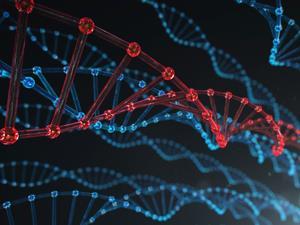Tiny fragments of DNA combined with fluorescent probes can be used to take temperature at the nanoscale

Smallest ever molecular thermometers made from DNA was first published by Chemistry World.
Tiny fragments of DNA combined with fluorescent probes can be used to take temperature at the nanoscale

Smallest ever molecular thermometers made from DNA was first published by Chemistry World.
No comments yet